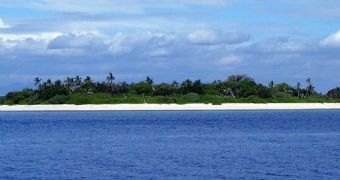The evolutionary theory of aging has just received additional proof, in the form of a fossil-based study that was published in the April 25 issue of the journal Proceedings of the Royal Society B.
In short, the work suggests that species living in ecosystems that boast only limited amount of resources, and where mortality is low, tend to become longer-lived than others. This finding could be interpreted as suggesting that island-based species live longer, on average, than counterparts on land.
“The study focuses on a fossil species, but our results have implications for herbivorous mammals in general, extinct and extant, and especially in insular endemic species,” Universitat Autònoma de Barcelona lecturer Xavier Jordana explains, quoted by PhysOrg.
The paper describing the findings is entitled “Evidence of correlated evolution of hypsodonty and exceptional longevity in endemic insular mammals.”

 14 DAY TRIAL //
14 DAY TRIAL //